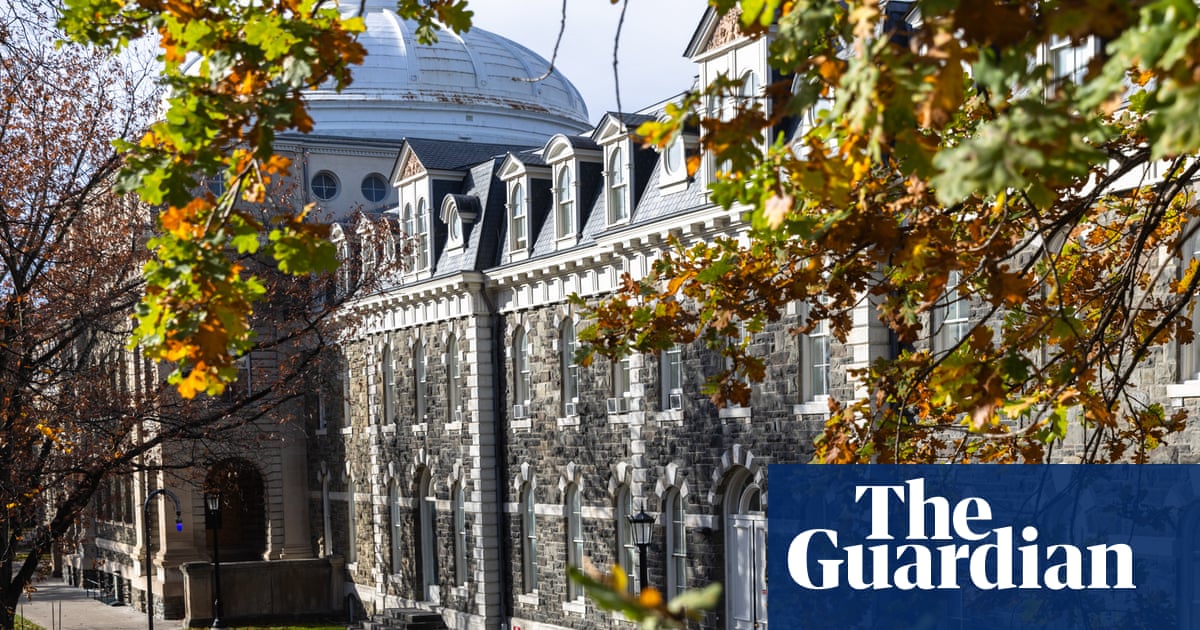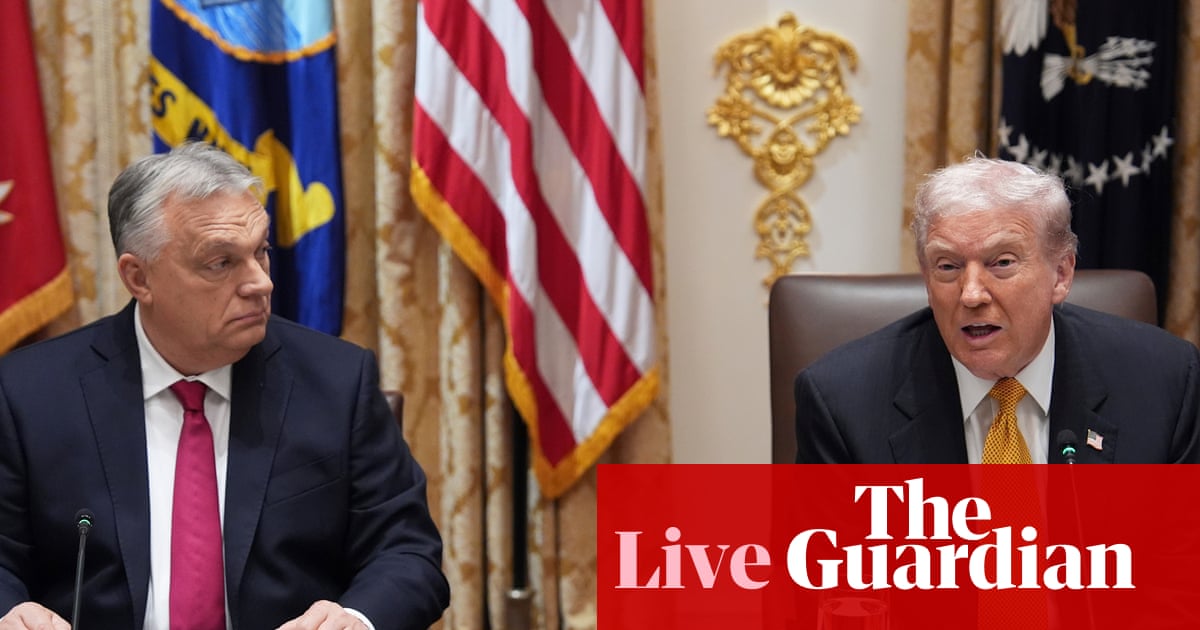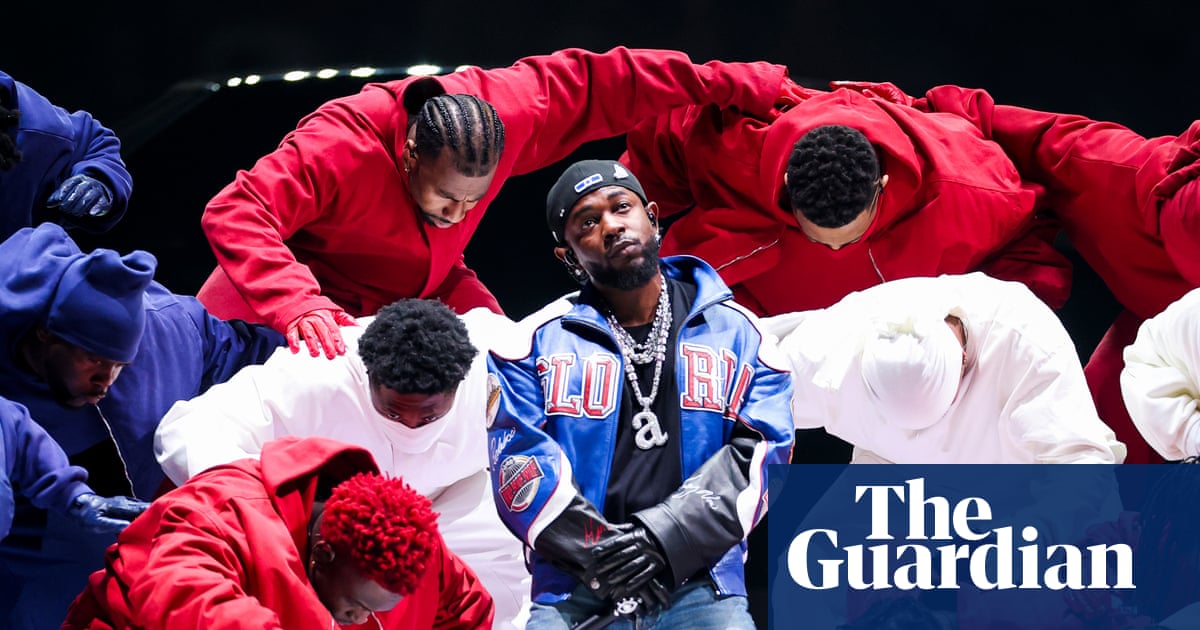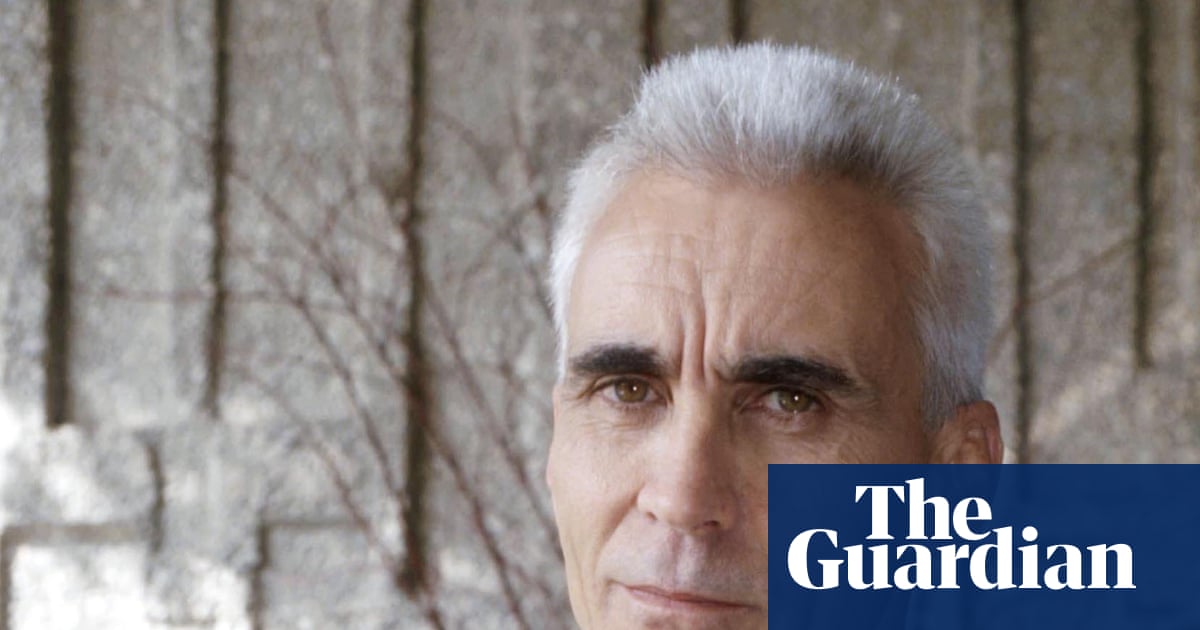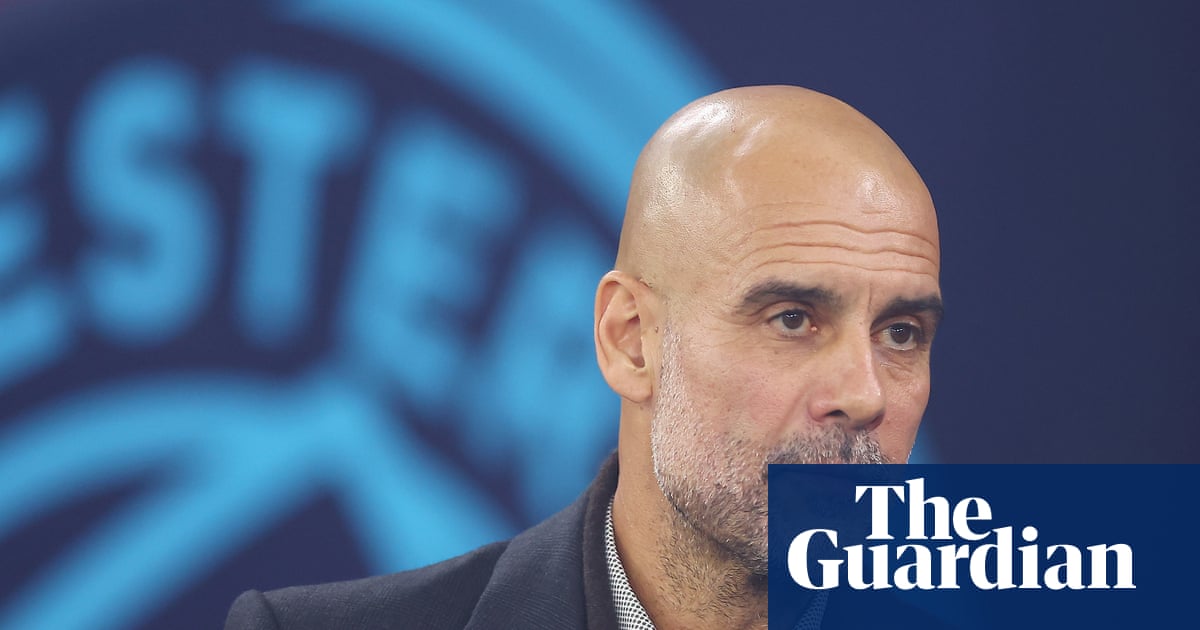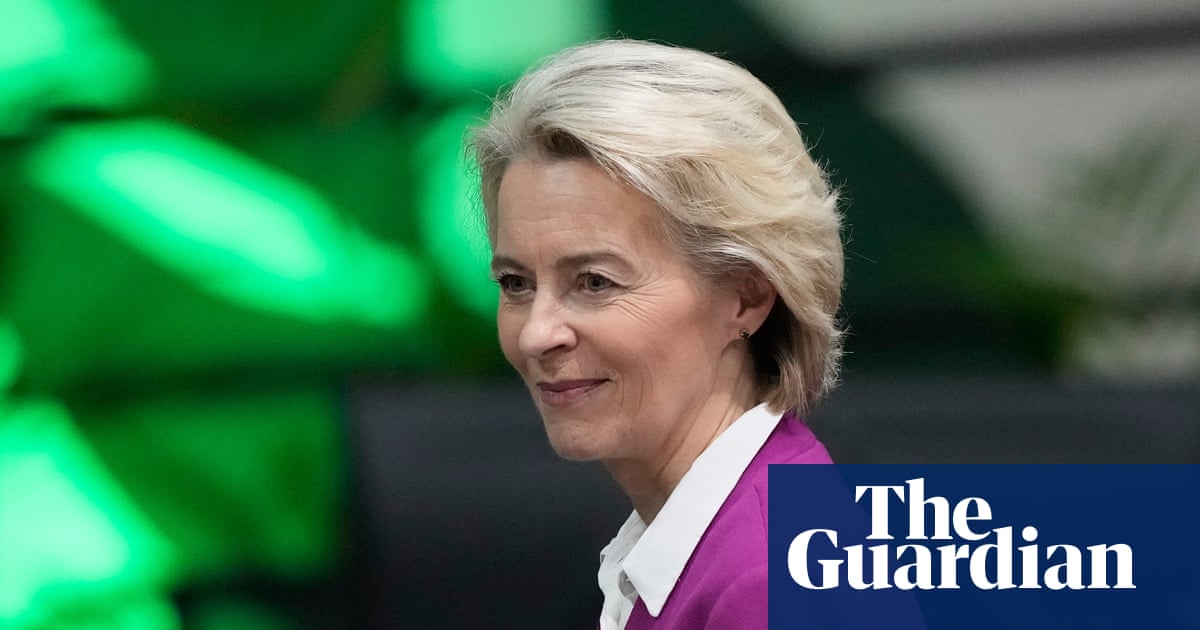It wasn’t quite le bromance of last week’s press conference with Emmanuel Macron. Then Keir Starmer and the French president had made no effort to conceal their affection for one another. A thousand ways to say je t’aime. They had even concluded their hour in front of the cameras with an awkward hug, unsure if a kiss on the cheek would be out of place. Exactly a week on, it was time for the German chancellor, Friedrich Merz, to share a platform with the prime minister at the Airbus factory in Stevenage. This one ended with a formal handshake and little eye contact.
That wasn’t the only difference between the two pressers. The one with Macron had started an hour late, a sure sign that Starmer had been trying and failing to secure a better deal on the returns agreement with France. This one began as scheduled. Most of the details had been signed off days, if not weeks ago. The one-day visit of the German chancellor merely a matter of protocol. But it was, in its way, an equally significant occasion. The first friendship and bilateral cooperation treaty between the UK and Germany. A coming of age. A relationship of equals with no place for tabloid stereotypes.
Keir got things under way with a quick resume of what had been agreed. A defence partnership. New investments. Ease of access between the two countries for both schoolchildren and frequent travellers. Cooperation on irregular migration. A new rail route between England and Germany. Albeit a reannouncement of one that had already been announced. Though it would be churlish to make a fuss of this on a good news day. A commitment to continue to be appalled by the situation in Gaza. But not to be so appalled that either country would actually do anything about it.
Then it was over to Merz. He began by speaking in English, saying how proud he was to have signed the newly named Kensington treaty. Then he switched to German. To spare Keir’s blushes. Because in his next breath he said how much he deplored Brexit. Even Macron hadn’t gone that far a week ago, merely expressing regret. Starmer does his best to forget Brexit. Likes to pretend it never happened. That for some unknown reason we found ourselves outside the EU. He went on to talk about Ukraine and the newly formed alliance of the E3. Germany, France and the UK.
Time for the questions. First up was Sky News’s political editor who talked and talked and talked. Almost as if she thought this was a three-way press conference with her, Starmer and Merz. Every time you thought she had come to an end, she came up with yet another long-winded question.
By the third minute, Starmer was beginning to look a bit uncomfortable. Perhaps he wondered if she would ever stop. Merz, though, was a revelation. He was loving it. “Thank you for your brief questions,” he smiled. He would love to answer them all. He had nothing better to do with his life than stand around in the factory for the rest of the day. It was top bantz. His answers turned out to be a great deal shorter than the questions. Friedrich not only had a decent sense of humour, he was modest with it. He may look like a technocrat but he also has a charm that becomes more and more obvious the longer you spend in his company.
For Keir, the main domestic question was his decision to suspend the whip of four backbenchers. Why bother? Why not let them do what they wanted? Much like Tony Blair had done with the 47 Labour MPs who had voted against his welfare bill in 1997. After all, it wasn’t as if his majority was ever under threat. So why not live and let live? Give the appearance of being a broad church where a variety of opinions can be tolerated.
For the only time during the press conference, Starmer looked a bit rattled. “We were elected to change the country for the better,” he said, somewhat testily. The suspension of the whip hadn’t been for the party’s benefit, he went on. It had been for the country. Which was strange. It hadn’t looked that way. It had seemed a sign of petulance. Weakness even. The unofficial version was that the MPs had been suspended for persistent knobheadery. Though you could say knobheadery cuts both ways. Something for Labour to consider.
But if Keir couldn’t tolerate some of his own MPs who had voted differently to him, earlier in the day he had been all in favour of widening the franchise. In response to an urgent question from the Conservative Paul Holmes, the junior democracy minister Rushanara Ali had announced the government would be extending the vote to 16-year-olds, as well as restricting the influence of foreign money in UK elections.
Needless to say the Tories weren’t at all happy about this. Right now, they would prefer to restrict voting eligibility to the over-75s. And even then they wouldn’t be guaranteed to win an election. Holmes couldn’t quite bring himself to say that no self-respecting 16-year-old would be seen dead voting Conservative, so he rummaged around for ever more specious reasons to say lowering the voting age was a bad thing.
You couldn’t buy cigarettes or alcohol until you were 18 so why should you get to vote? Perhaps he felt you needed to be pissed to enter a ballot box. Holmes hadn’t quite grasped that you could join the Tory party at 15 and vote for a leader. Talking of which, the Tories are in no position to give lectures on voting ethics. They were the party that foisted Liz Truss and Rishi Sunak on us, without giving us a chance to say what we thought about it.
The Lib Dems’ Sarah Olney was all in favour of lowering the age limit but wondered if the government might go further. To something like proportional representation. Ali closed that door swiftly. The Lib Dems had had their chance and blown it. End of. You could have too much of a good thing with democracy.

 3 months ago
59
3 months ago
59





